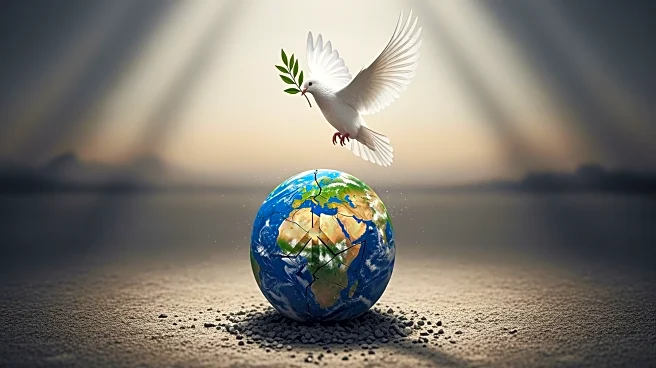What's Happening?
The International Court of Justice has issued an advisory opinion stating that Israel has not fulfilled its obligations as an occupying power in Gaza. The court emphasized the need for Israel to cooperate
with the United Nations to ensure the provision of essential supplies to Palestinian civilians. The ruling follows Israel's legislative actions that restricted the operations of the U.N. Relief and Works Agency for Palestinian Refugees. The court found that Israel's military actions have hindered aid delivery, exacerbating humanitarian conditions in Gaza.
Why It's Important?
This ruling by the U.N.'s top legal body underscores the ongoing humanitarian crisis in Gaza and the international community's concern over Israel's policies. The decision could influence diplomatic relations and pressure Israel to alter its approach to aid delivery in the region. The humanitarian situation in Gaza remains critical, with significant implications for regional stability and international relations. The court's opinion may also impact future negotiations and peace efforts in the Middle East.
What's Next?
Israel has rejected the court's advisory opinion, citing politicization of international law. The U.N. and other humanitarian organizations may increase efforts to facilitate aid delivery to Gaza, despite Israeli restrictions. The international community may continue to advocate for compliance with humanitarian standards, potentially leading to diplomatic discussions or interventions. Monitoring the situation in Gaza will be crucial to assess the impact of the court's ruling and any subsequent actions by Israel or international bodies.









